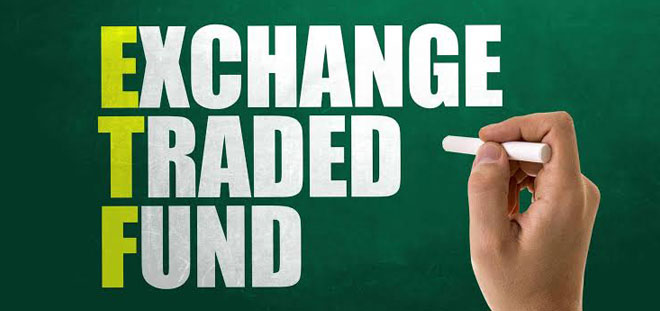An ETF (Exchange Traded Fund) is a diversified collection of assets (like a mutual fund) that trades on an exchange (like a stock). ETFs are an easy-to-use, low cost and tax efficient way to invest your money.
Similar to mutual funds, ETFs offer diversification, as you get a diversified collection of stocks and/or bonds, which can potentially help reduce risk compared to individual securities. And the funds are managed by professional managers. Also, as with mutual funds, the risk profile of an ETF is derived from its underlying holdings.
However, unlike mutual funds, ETFs typically cost comparably less: one-third the cost on average, and there are no hidden loads or fees. Most ETFs aim to match the performance of a benchmark index. This strategy generally requires less frequent turnover of holdings within the fund, so fund fees tend to be lower.
What more, your taxes may be significantly lower: tax costs for ETFs on average are less than half those of the average mutual fund. When you sell your mutual fund or ETF at a gain, you will have to pay taxes on the gain. But capital gains taxes can be incurred even if you don’t sell your shares, due to trading activity within your fund. Active mutual funds that frequently buy and sell securities are often subject to higher capital gains distributions. Because most ETFs track an index, they tend to generate fewer undesirable capital gains distributions.
Only 12% of active managers beat their benchmarks after fees and taxes over the last five years. Because of the more frequent trading and complex strategies in actively managed funds, fund expenses are higher – so performance has to be good enough to compensate for those higher fees.
iShares Core ETFs which the InvestNudger app offers have outperformed more than 75% of their mutual fund peers on average over the past 10 years. When low cost funds post solid performance, investors keep more of what they earn. Investment fees and taxes matter. When you combine the impact of lower fees, potential tax savings, and performance that seeks to match an index. ETFs may potentially earn you nearly $66,000 over 10 years.
Even though ETFs are an easy to use, low cost and tax efficient way to invest money, they do not trade constantly on the stock exchange, thus are not all that profitable to invest in. This is where InvestNudger offers you a great and unique opportunity. It offers you iShares ETFs owned by Blackrock, the biggest investment manager in the world. This fund helps you keep more and is professionally managed. With InvestNudger, your investment is on autopilot.
The benefits of iShares Core ETFs include:
Cost
ETFs typically cosy less than comparable mutual funds (1/3 the cost, on average) without hidden loads or fees. If one is using a brokerage, it may charge a transaction fee, however iShares ETFs on the InvestNudger app are available commission-free. More so, your taxes may be significantly lower: tax costs for iShares ETFs on average are less than 1/2 those of the average mutual fund.
Fund Performance
Most ETFs seek to closely match the performance of an established stock or bond index, such as the S&P 500 or the Blomberg Barclays U.S. Aggregate Bond Index. Actively managed mutual funds try to beat the index, which can be hard to do, especially after fees and taxes. iShares Core ETFs have outperformed more than 75% of their mutual fund peers on average over the past 10 years.
Buying and Selling
As with stocks, you can buy and sell ETFs at the market price whenever the market is open. Mutual fund shares are purchased directly from the fund at NET Asset Value (NAV) and priced once a day after the market closes.
Knowing What You Own
Because ETFs usually aim to track an index, their holdings change relatively little over time – without the “style drift” that may surprise mutual fund investors.

